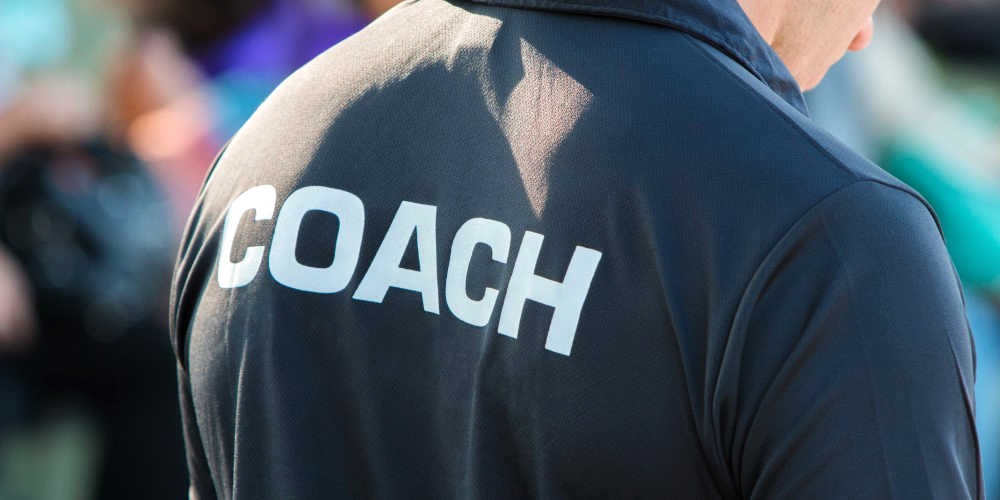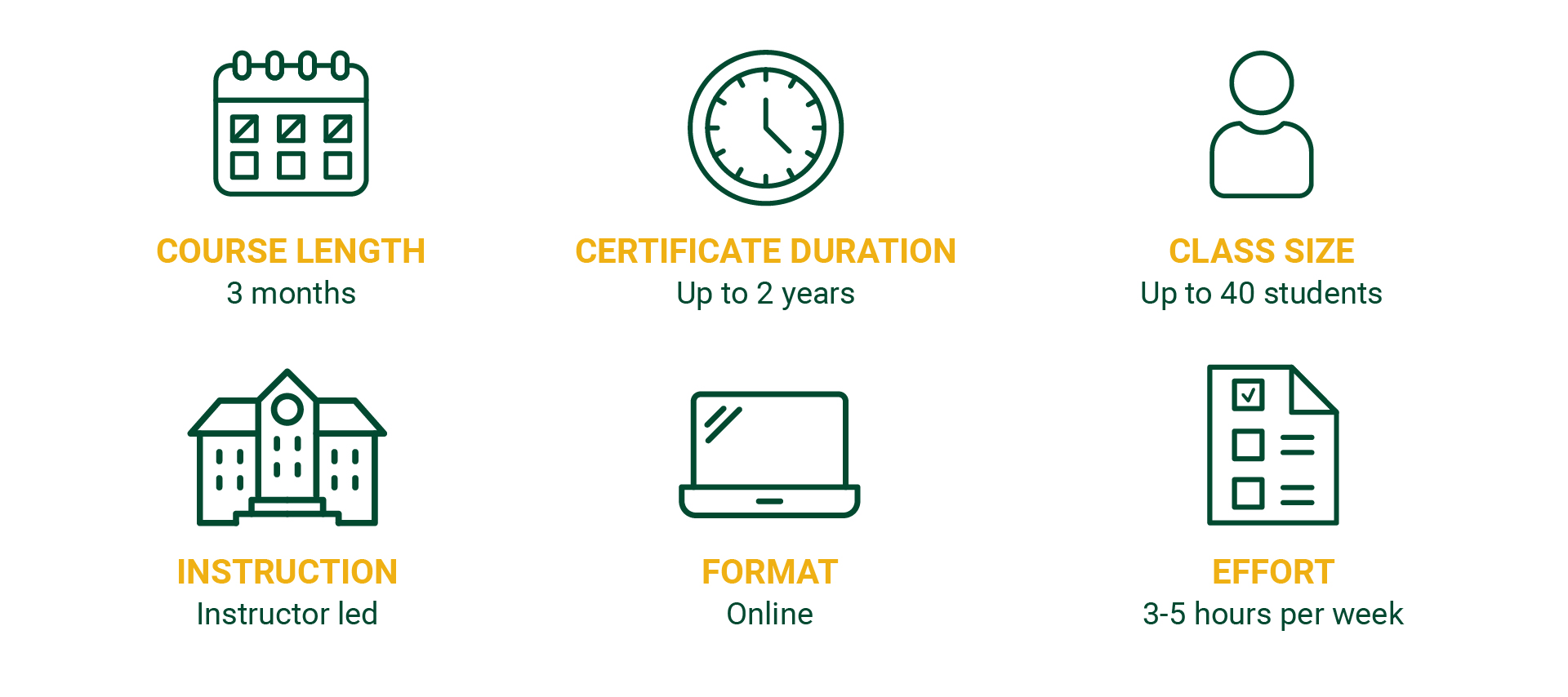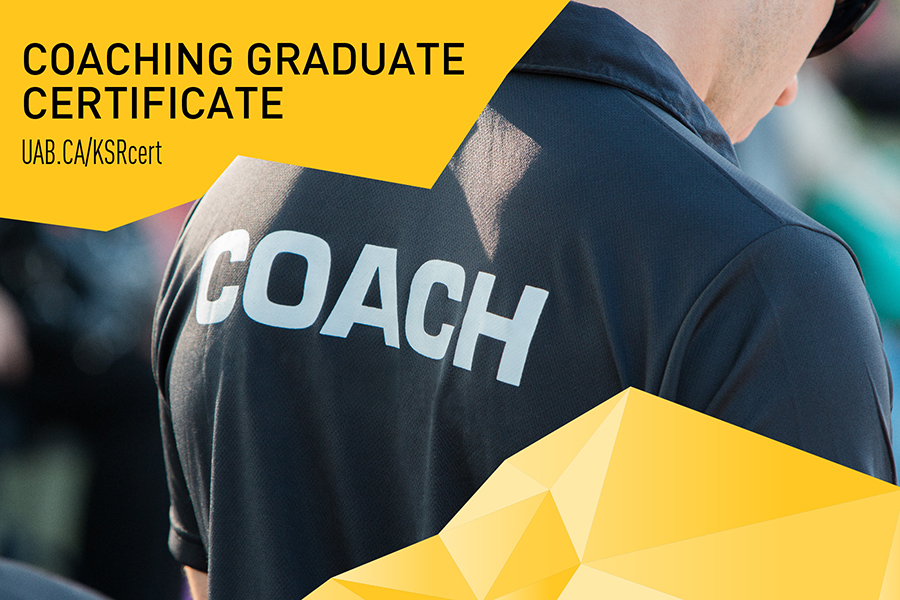Coaching Graduate Certificate

Take your career to the next level with the Coaching Graduate Certificate.
Students will learn to analyze performance, provide support to athletes in training, design a program and provide valuable feedback as well as practice problem solving, critical thinking, decision making and communicating effectively.
Students will also learn the elements of Athlete Learning and Development and Sport Science that covers a variety of topics and issues related to both the art and science of coaching.
Graduates will be equipped with the knowledge and skills to reflect and think critically about what it means to be an effective and ethical coach.
The program is designed for working professionals seeking to enhance their skills and knowledge in coaching. This includes those working in sport, recreation and education, as well as professional or volunteer coaches, assistant coaches and others.
This is a graduate-level certificate and may be applied to a course-based, master's degree in the Faculty of Kinesiology, Sport, and Recreation. Courses are delivered online and there is no in-class component.
The Coaching Graduate Certificate is currently on hold until further notice.
Apply Now
Please see the FAQ section below for information on courses, tuition and program requirements.
How it Works

Courses are instructor-led and delivered online. They combine the best aspects of real-time (synchronous) learning guided by your instructor and independent self-directed (asynchronous) study which can be accomplished according to your schedule.
Please note: there may be scheduled times in which students are expected to attend live online sessions.
Courses
Students are required to complete four courses, each worth 3 credits, for a total of 12 credits. There are six courses to choose from plus the non-credit seminar. Courses are offered online only and students will have up to four years to complete the certificate.
The nature and number of courses offered in a calendar year will vary. All six courses will not be offered each year.
- Social Dimensions of Performance in Sport
- Psychosocial Dimensions of Performance in Sport
- Sport and Physical Activity for Children and Youth
- Motor Learning and Performance in Sport
- Physiology and Performance in Sport
- Biomechanics and Performance in Sport
- Coaching Seminar (non-credit)
Courses and details listed below:
This course critically examines various power-knowledge formations and systems of discrimination such as racism and sexism and the implications they hold for those involved in the provision and production of sport. The starting point for this course is that performance and coaching in sport is an inherently complex, uncertain, and ambiguous process with long-standing colonial ties and neoliberal tendencies.
This course provides students with a number of strategies and approaches informed by social theory to enable them to reflect on the effects of these various systems and processes in order to design and implement more effective and ethical practices.
This course offers a theoretical and empirical analysis of various psychological constructs that underlie athlete performance and experience in competitive sport. This course examines the theoretical underpinnings of psychological (e.g., confidence, motivation), emotional (e.g., anxiety, anger), cultural (e.g., norms, roles), and personality characteristics (e.g., perfectionism, grit) that can play a role in the competitive sport experience for athletes.
Students are exposed to key psychological constructs relevant to competitive sport settings and effective coaching in order to account for participation and performance in sport as a deeply holistic process.
This course examines a range of psychosocial aspects of sport and physical activity participation among children and youth. Topics may include parental involvement, peer relationships, coach/leader behaviour, sport for development, talent development, life skills, inclusion, and exclusion especially as they relate to an awareness and appreciation of difference and diversity.
Throughout this course, ways in which coaches and physical activity instructors can promote positive developmental experiences for children and youth will be discussed, along with strategies for knowledge translation and exchange with broader community audiences including, in particular, Indigenous communities.
This course will explore recent and seminal research in the field of motor learning and performance in sport. A number of current theories and models will be discussed as well as the experimental literature concerned with the learning and performance of skilled movement across a diverse range of sport contexts.
Also covered in this course will be various issues concerning the ‘nature’ of motor skills, transfer of practice and feedback, as well as their integration with the retention of motor skills with specific application to the practice of coaching as a complex and highly integrated act.
This course provides students with a survey of selected topics in exercise physiology with an emphasis on the application to sport and the planning practices employed by coaches. The course will normally include the study of metabolic, cardiorespiratory, neuromuscular and environmental physiology with reference to training and competition across a variety of sporting contexts.
As well, possible topics may include the discussion of a variety of contemporary physiological issues related to coaching such as: sex-based differences in fitness norms for sport performance, ergogenic aids, and the place of experiential knowledge in enhancing sport performance.
This course will provide students with a detailed mechanical exploration of form and function in the human system with respect to performance in sport. The focus will be on the integration of various anatomical and mechanical concepts and their specific application to movement across a range of sport contexts.
Students will also be encouraged to consider how both qualitative and quantitative applications of biomechanics to coaching can enhance athletes' movement and performance capabilities through a rich and holistic understanding of the moving body in culture.
The purpose of this seminar is to provide a forum for students to share their thoughts, perspectives, and insights on their coaching in a supportive student-centred environment.
This non-credit course is mandatory for students to earn their certificate and will be offered once per academic year. The seminar will be convened by a KSR professor and each session will typically run for up to three hours and be held a maximum of five times in the term where it has been scheduled, e.g., fall, winter, spring, summer.
The seminar's content will vary from year to year based on the specific needs and make-up of the students. In general, however, each session will include opportunities for students to discuss and reflect on their own coaching based on different prompts, exercises, readings, and guest lectures concerning a variety of coaching-related topics.
Importantly, there will also be a focus on equity, diversity, and inclusion as it relates to coaching running through every topic covered. One topic in particular that will be covered will be the uniqueness of Indigenous cultures, values, and lifestyles and the influence this can have in shaping more equitable and just coaching practices.
Other possible session topics might include:
- Athlete-centred coaching
- Coaching ethics
- Practice design issues
- Philosophical issues
- Evaluating performance
- Game-day preparation
- Off-season training
- Managing staff and budgets
- Athlete development models
- Identifying and closing performance gaps
- Sport and coaching cultures
- Systems of exclusion and marginalization in sport
- The role of sport science
- Athlete health
FAQs
Upon successful completion of the Certificate, students will have developed a number of highly relevant competencies – knowledges, skills, and qualities – to enable them to work successfully as a coach across a variety of sport contexts.
More specifically, students will be prepared to:
- Lead and empower others with respect and an awareness and appreciation of difference especially as it concerns age, gender, racial background, Indigenous background, disability, or sexual orientation;
- Problematize a range of taken-for-granted coaching practices through the application of a number of advanced social science and natural science theories and concepts;
- Analyze the processes related to athlete development and performance enhancement from a holistic and multi-disciplinary perspective that goes beyond coaching the physical to include the mental (intellectual and emotional), spiritual, and cultural;
- Identify and manage effectively the multiple factors that contribute to sport’s dynamic and diverse nature;
- Demonstrate the importance of thinking ethically as a coach and using one’s power and expertise responsibly in order to promote and foster coaching environments that are safe, positive, healthy, developmentally appropriate, and that also acknowledge individuals’ unique life experiences, qualities, and characteristics;
- Critically evaluate the production and dissemination of sport science and coaching research with a particular emphasis on structures of knowledge that reinforce and perpetuate coaching practices that fail to consider a multiplicity of perspectives and approaches to the provision of sport;
- Communicate effectively, both orally and in writing, to develop strong and positive relationships across a range of relevant communities, e.g., athletes, families, support team members, and other stakeholders;
- Disseminate through various formats, such as publications and presentations, advanced conceptions of effective coaching
- Eligible students will have an Undergraduate Degree, with a GPA of 3.0 (if you do not meet this, please contact the Manager, International and Community Education @ KSRCert@ualberta.ca)
- A minimum of 1 year related work experience.
- A current curriculum vitae/resume.
- A letter of intent.
- One professional reference.
